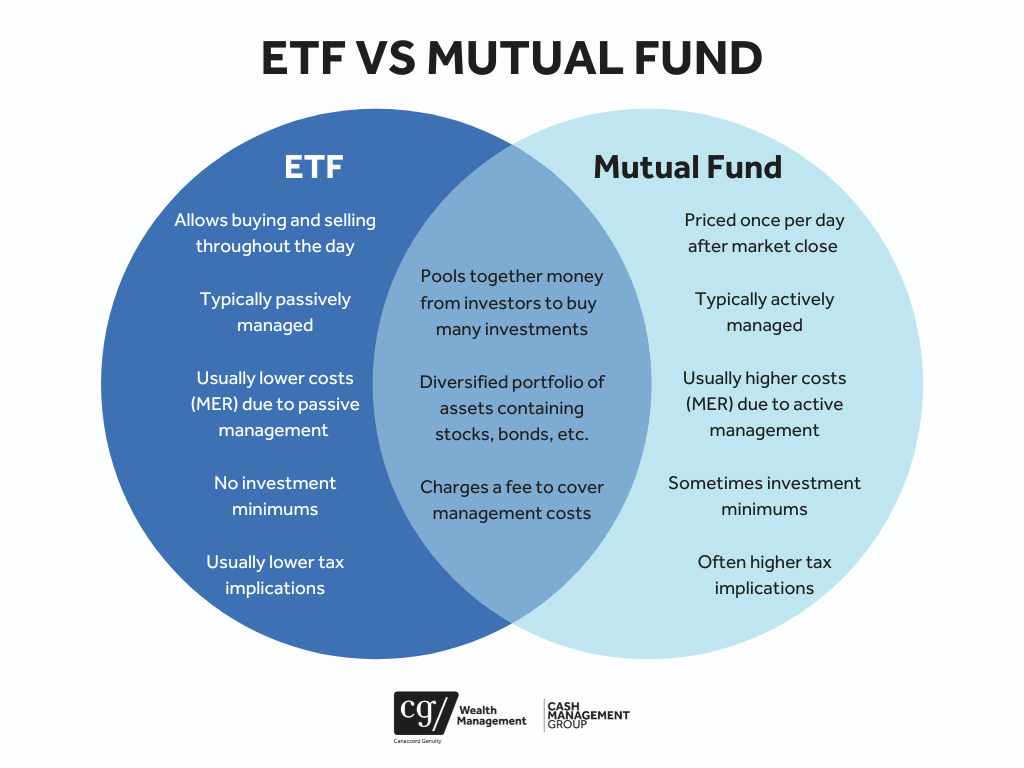Disclosure: This post may contain affiliate links. We may earn a commission if you sign up through our links, at no extra cost to you.

Introduction
Most new investors hear “ETF” and “index fund” and assume they’re the same thing, but there are some key differences that can impact your returns, fees, and control.
In this 2025 guide, we’ll break down index funds vs ETFs in Canada, showing you how each works, their pros and cons, and which fits your investing goals best.
By the end, you’ll know whether an index fund or ETF is the smarter choice for your portfolio this year.
Related reads:
What Is an Index Fund?
An index fund is a type of mutual fund designed to track a specific market index, like the S&P 500 or S&P/TSX Composite.
They’re managed by large institutions (e.g., TD, RBC, or Fidelity) and trade once per day at their Net Asset Value (NAV).
You can buy them through your bank or a financial advisor, making them ideal for hands-off investors who prefer automation.
Example: TD Canadian Index Fund (TDB900), one of the most popular index funds for Canadians.
What Is an ETF (Exchange-Traded Fund)?
An ETF also tracks an index, but it trades like a stock on the open market. You can buy or sell it anytime during market hours.
ETFs are known for:
- Lower fees (typically 0.05%–0.25%).
- Greater flexibility.
- Tax efficiency (great for non-registered accounts).
Example: Vanguard’s VFV (S&P 500) or iShares XIC (Canadian Market).
Because of their low costs and accessibility, ETFs have become the preferred investment vehicle for most Canadians in 2025.
Key Differences Between Index Funds and ETFs
| Feature | Index Fund | ETF |
|---|---|---|
| Trading | Once per day (end of day) | Anytime during market hours |
| Fees (MER) | 0.5%–1% | 0.05%–0.25% |
| Minimum Investment | Often $500+ | As low as one share |
| Purchase Method | Through bank or advisor | Through online broker |
| Liquidity | Low | High |
| Tax Efficiency | Moderate | High |
| Best For | Set-and-forget investors | Active or cost-conscious investors |
Pros and Cons of Index Funds vs ETFs
Pros of Index Funds
- Easy to buy through your bank.
- Automatic monthly contributions.
- Great for beginners uncomfortable with brokerages.
Cons of Index Funds
- Higher management fees over time.
- Limited control over buying and selling.
- Some banks include hidden management costs.
Pros of ETFs
- Lower fees and more flexibility.
- Global diversification in a few clicks.
- Compatible with TFSA, RRSP, FHSA, or taxable accounts.
Cons of ETFs
- Requires an online brokerage account.
- Overtrading temptation for beginners.
- Currency conversion fees if you buy U.S. ETFs.

Which One Is Better in 2025?
For most new investors, ETFs offer more flexibility, lower cost, and easier diversification.
But if you want simplicity and automation, index funds are great for a hands-off approach through your bank.
💡 Fun fact: Many of the best robo-advisors actually use ETFs under the hood, giving you the best of both worlds.
How to Choose Between Them
Ask yourself: Do you prefer control or convenience?
- If you value automation, go with index funds.
- If you want growth and control, choose ETFs.
- If you want both, consider a robo-advisor that invests in ETFs automatically.
Example platforms:
Wealthsimple
Questrade

Final Thoughts
Both index funds and ETFs can help you build long-term wealth in Canada — the key is consistency, not perfection.
Start with what’s easiest for you, automate your contributions, and stay invested.
Keep learning:

